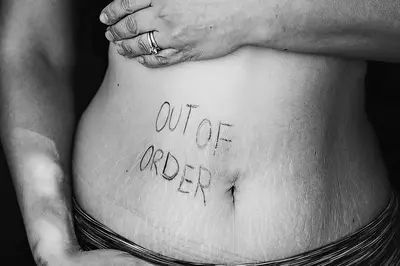A Self-Care Guide for Survivors

Self-care seems like a buzz word that people are getting sick and tired of. In reality, you probably do and value some form of self-care every single day, whether you think of it that way or not.
When people think of self-care, they can get a little cynical. It gets a reputation for being shallow or something that only the privileged get to do. The reality is, everyone does some basic self-care, or you probably wouldn’t be here.
According to the International Self Care Foundation, it is estimated that 70-95% of all illnesses are managed without the intervention of a doctor. That means that self-care is usually the first treatment for everyday health conditions (ISCF, 2021). In the case of living with chronic illness, you are tasked with doing a great deal of self-care just to keep up with your healthcare team's recommendations.
What Self-Care Includes
Hygiene
- Washing hands
- Regular bathing
- Cleaning your teeth
- Wearing clean clothing
Physical Activity
- Dancing
- Climbing stairs
- Walking
- Yardwork
- Yoga
Avoiding Risky Behaviors
- Smoking
- Tobacco products
- Alcohol abuse
- Illicit drugs
- Not wearing a seatbelt
- Not using a helmet
Sleep
- Getting 6-8 hours a night
- Developing a sleep routine
- Sleep during night time
- Get physical activity during the day to sleep better at night
Nutrition
- Eat a variety of foods
- Choose colorful foods
- Mostly fruits and vegetables
- Know the ingredients of the foods you eat
- Eat consistently throughout the day
Seeking Care and Support
- Scheduling regular medical appointments
- Asking for help
- Talking to mental health professional
- Accepting help
Listen to Your Body
A really important, and often overlooked, aspect of self-care, is practicing the ability to really listen to your body and what it needs at any given time. In other words, making the proper self-care diagnosis. It’s so easy to get side tracked because you get bombarded with social media posts and advertisements about self-care products, plans, or other “must haves.” If you’re feeling down or simply a little off, it’s easy to fall into these traps. Instead, try to first slow down. Find an activity you enjoy and do that to clear your head. Once you get to a place where your mind isn't racing, ask yourself what it is that you need. You can do this in small ways and in big ways.
For example, if you’re trying to multitask and hurry to get ten things done around the house, and you find yourself very irritable, it’s worth taking a step back and assessing the situation.
Take a moment to ask yourself
- Is there excess background noise that’s making you irritable?
- An abandoned TV blaring in the next room that could be turned off?
- Are you hungry? Thirsty? Tired?
- Are you running late? Or forgetting something?
Once you’ve identified the top 1-3 things that are contributing to your irritability, you can make some simple adjustments to your situation and reset.
A bigger picture example is taking time to reflect and plan, or take control of your time and energy. For this, you can try daily journaling. You don't need to do a lot of writing, just make bulleted lists of the things that drain you and the things that fill you up. Simply taking the time to reflect helps, but writing it down helps you identify patterns over time.
People really envision things like spa days, salads, and workouts when they think of self-care. But important mental and emotional health strategies are rarely ever mentioned. Setting boundaries is an important example. Setting boundaries with your time, energy, and emotional expenditures is often the most impactful self-care step you can take. It isn’t easy at first, especially because setting boundaries often involves other people, but it gets easier over time. Remember, you don’t have to explain yourself and you definitely don't have to apologize.
Resilience
Resilience is your ability to bounce back after something tough happens. Building resilience is one of the main motivators for practicing self-care. Every act of self-care you do, is like making a deposit into your resilience savings account. You can’t self-care your way out of a crisis, but if you’ve spent years investing in your resilience savings account, you will be better prepared to handle any crisis life throws at you, and you will recover more quickly.
Instead of falling into the “all or nothing” mindset, try to praise yourself for every act of self-care you do. Instead of beating yourself because you didn’t work out, you might think, “my body must have really needed that extra hour of sleep this morning.” And then strategize how you might fit that workout in later.
Self-care doesn't have to be a monumental event scheduled into your day. Instead, I think, "I have 25 minutes until my next meeting, what can I do for 20 minutes? Walk, stretch, pet my dog, eat? What would energize my body and my mind?".
Self-care looks different for everyone. It is impacted by things like your baseline physical and mental health, your responsibilities both inside and outside the home, your social determinants of health, and by the national and global crises such as the pandemic and racial injustice we are currently living through. The most impactful forms of self-care don't cost anything. Slow down, if even for just one moment, tune in, reflect, listen, act.
If you don't know where to start, consider using the wellbeing assessment tool to figure out your strengths and opportunities for enhancing your wellbeing.



